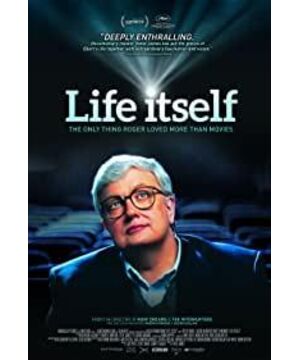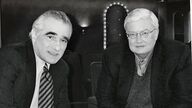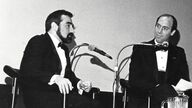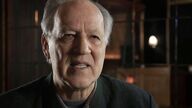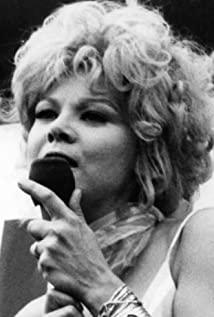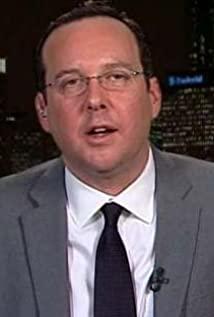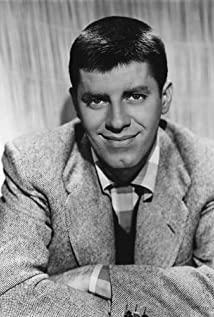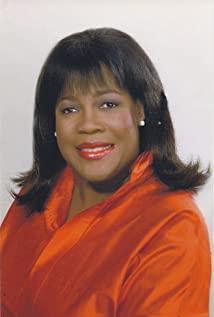Roger Ebert was born on June 18, 1942 in Illinois, United States. In 1967 he gave up his Ph.D. in English from the University of Chicago to write film criticism and won the Pulitzer Prize for Criticism in 1975. The "thumb up" evaluation method he pioneered in TV shows has become the quality assurance of films in the minds of movie fans. Christopher Nolan, the director of "Inception", was in 2002 because of his "Insomnia". Excited to get Ebert's "thumbs up" affirmation.
Roger Ebert (right) chatting with Woody Allen about film at the University of Chicago in 2000.
Ebert, collected by film critic Dana Stevens, responded to her letter.
Morning Post reporter Shen Yi
On the afternoon of April 4, local time, the famous American film critic Roger Ebert died of cancer in Chicago at the age of 70. In 2002, Ebert was diagnosed with a thyroid malignancy, and in 2003, the cancer had metastasized to the salivary glands. Two days before his death, he wrote on his blog that he was undergoing chemotherapy for a recurrence of cancer. Roger Ebert's wife, Chaz Ebert, told the media on Thursday that Ebert was calm at the last moment. "He looked at us and smiled, there was no struggle, no pain, and he walked calmly and with dignity."
"See you at the cinema" is
the last word he left to fans
In his last blog post, A leave of presence, Ebert said: "This past year has been the most productive year of my career, I have written 306 reviews, one or two a week. Blog, and a few other related articles. I have to slow down and give the rest to talented film critics I admire, and I now have a choice to write reviews, only those I really want to review It's something I've dreamed of all my life. That's why I'm happy to call this state 'a leave of presence'." In this blog post, Eber Te is still optimistic and has made positive plans for his future work. He said that he will devote himself to the "Digital Ebert" online media founded with his wife and friends, and will launch a new and upgraded version of the website RogerEbert on April 9. com. At that time, the website will build a richer film review database, which will not only contain more than 10,000 film reviews written by Ebert since 1967, but will also produce special features for other film critics, including reviews of documentaries and classic films. At the same time, he also mentioned the "EbertFest" film festival held every year at his alma mater, the University of Illinois at Urbana-Champaign, which is about to enter its fifteenth anniversary. In the coming weeks, he will be working on a campaign to turn the video game into a movie. "Once I'm done, you are welcome to debate with me whether this is art or not." Ebert also mentioned that a biographical documentary about himself, co-produced by Martin Scorsese, Steve Zaillian and Steve James, is also in the works. in progress. "I feel flattered, but also deeply grateful," Ebert said.
In the final text to fans, Ebert made no secret that his "retirement" was also due to health reasons. He suffered a comminuted coccyx fracture in December and a recent recurrence of cancer has made it difficult for him to walk and speak. Even though it was getting harder and harder to go to the cinema, he still insisted on watching through the copies sent by the filmmakers. Ebert didn't seem to want to stop writing two days before his death, saying: "It's really bad that the cancer came back and kept me in hospital for too many days. So in the 'bad days' to come, I'll write Vulnerability and distress from some illnesses, and on 'Good Days' I would write an ecstatic film about how it helped me out of the pain."
"See you at the cinema." was the last sentence he left to fans.
Obama: "For a generation of Americans, he is a movie."
Since he wrote a film review for the Chicago Sun-Times in 1967, Ebert has been writing continuously for 46 years. In the entire Western film critic circle, and even in the hearts of countless Chinese film fans, Ebert Te is undoubtedly a godfather figure. US President Barack Obama once said that for a generation of Americans, especially Chicagoans, he is a movie. In 2005, Ebert became the first film critic to make his mark on the Hollywood Walk of Fame, and he was also the first film critic to win the Pulitzer Prize for Criticism (1975). Ebert is not a film critic who stays on the print media. In addition to newspapers, the Ebert brand has extensive influence on TV and the Internet. In the same year that they won the Pulitzer Prize, Ebert and his partner Gene Siskel began a two-year-long TV film critic program "Siskel & Ebert" on Chicago local television. In the more than half-hour program, the two will review four or five movies in turn, and give a "thumb up" or "thumb down" rating. If the two disagree, there will be a debate. Their impromptu humour made them some of the most influential film critics in the country, and "thumbs up" became a highly personal and well-known film judging yardstick. Even for many Chinese movie fans, the name Ebert may have been known for the first time from the early recommendation such as Thumb Up on the cover of pirated discs. In the minds of moviegoers all over the world, it seems that if Ebert crosses his thumb, then the quality of a movie will be more or less guaranteed.
In 1999, after the death of old partner Siskel, the show was taken over by Richard Roeper, Ebert's colleague at The Sun, and became "Ebert & Roeper". At its peak in the morning, Ebert's TV shows had between 8 million and 11 million viewers. Director Spielberg commented: "Ebert wrote film reviews with great enthusiasm and real film knowledge, helping countless films find their audiences and making TV film criticism a place in history." In early 2011, Ebert, who has been battling thyroid cancer for years, has launched a new TV show. At that time, he lost part of his jaw due to surgery and was unable to speak normally, but the show still read his film reviews in voiceover.
Ebert's TV film criticism has also attracted controversies from his peers after it became popular. For example, there are TV marketing, which promotes the inertia of the audience, and brings about the bad trend of fast-food review culture. In this regard, Ebert retorted that his TV film critics never charge on-set fees. The so-called "doomsday theory of film critics" is only alarmist, and the influence of film critics should be paid more attention to. Indeed, "film critic" has always been Ebert's first position, and as a daily film critic with an enormous workload, he wrote in "A Memo to Myself and Certain Other Film Critics" in 1991. Writes: "Writing a film review for the newspaper every day is an act of seeking a balance between the bottom line and a higher pursuit, an act of seeking a balance between the answers to two questions: 1. This movie is worth paying for Do you see it? 2. Will this film increase or deny my understanding of human nature?"
In any case, the accusation against Ebert's "fast food film review" is somewhat unfounded. Ebert, who has experienced the golden age of cinema first-hand, is clearly distressed at the decline of the art of cinema in the box-office era: "There will be no more avid moviegoers waiting in line at the gates of ordinary cinemas to watch Alain Resnais's Last Year at Mariomba. Germany' and Godard's Weekend." He said, "Early classics are still untapped territory for many film lovers and even the most avid. As a daily film critic, I don't want to live my life. Only focus on the contemporary movie world." So Ebert started writing a column called "Great Movies" in the Chicago Sun-Times, recommending and analyzing 100 best movies in movie history to fans. "The Great Movie" was assembled three times as a book, and shortly before his death, Ebert said in a blog post that the book would be edited and published for the fourth time.
"Good movies make us
better people"
Ebert was born in Urbana, Illinois, on June 18, 1942, the son of an electrician. From the age of 15, he began to write high school sports coverage for the local newspaper, and also wrote his own science fiction for some magazines. Becoming a professional film critic didn't seem to be his plan. As far as he recalls, "A Day at the Racetrack" by the Marx Brothers was the first film he saw. After graduating from Ebert University in 1964, he won a one-year fellowship at the University of Cape Town in South Africa, and then began his PhD in English at the University of Chicago, before dropping his degree the following year to spend his "golden year" in film critic writing. (1967) into the industry. In a situation where the industry was still led by "conservative" film critics such as Bosley Crother, Ebert accurately grasped the characteristics of the times of rebellion and protest in youth films. Nee and Clyde (1967), 2001: A Space Odyssey (1968), and Easy Rider (1969) were all on the right side of the war against the "New Hollywood" of the same age. "The director is generous with praise. Many senior movie fans said that they changed their views on Robert Altman because of reading Ebert's article, and another major Hollywood director, Martin Scorsese, is now shooting a documentary for Ebert. Some personal emotional factors (in order to thank him for escorting him back then). Undoubtedly, Ebert's comments are an inescapable chapter in writing the history of "New Hollywood."
The teacher-friend relationship between Ebert and the director has always been a story in the film industry. After his death, German director Herzog accepted an interview with Western media for the first time. He said: "I have always respected and loved him as a great movie warrior, and a warrior who has been scarred for many years. He has always adhered to the On the outposts on the front lines, even if the battlefield has been forgotten by most people. In the past 20 years, the intellectual musings about the film are gradually fading, replaced by the tidbits of the stars. Although Roger has left us, he I still feel his gaze, and I'm going to stick with it for that."
Christopher Nolan, who directed The Dark Knight, also recalled seeing Ebert for the first time after his death. At the 1998 Toronto Film Festival, Nolan was about to screen his first film, "The Following," when he was anxiously waiting for the audience to enter when he saw Ebert. But what is dramatic is that Nolan just high-fived with his companions to celebrate, but Ebert ran out to him and said, "Ah, I'm sorry, I went to the wrong theater." Despite this, Nolan still said that he had been right when he was a child. "Siskel & Ebert" TV film review program was impressive: "It was my inspiration to understand film reviews." Nolan recalls: "Years later, in 2002, when my 'Insomnia' got a 'Thumb up', I It's hard to contain the excitement... When you get to know a film critic like Ebert, you will have a clear understanding of the film and understand what a film should bring to the audience."
In addition to being a film critic in the media , Ebert has taught film at the University of Chicago School of Art since 1969. In 1999, he started the EbertFest Film Festival at his alma mater, the University of Illinois, focusing on good films that have been ignored or snubbed. After Ebert's death, many younger film critics mentioned Ebert's generous encouragement to them in his early years. Female film critic Dana Stevens even found a response to a letter she wrote to Ebert as a teenager. She said: "He got back to me very quickly, typed word for word on the Chicago Sun stationery, and he encouraged me to do my best to watch all the good movies and to keep writing!"
Last year, two Iber The Chinese version of "The Great Movie" and "Wake Up in the Dark" were published in the mainland, allowing Chinese readers to have a more systematic and comprehensive understanding of the great achievements made by the film critic godfather in film criticism. David Bordwell writes in his preface to "Waking in the Dark": He brings astonishing energy, sharp judgment, vast knowledge, probing eye and keen sense of humor into his critical essay on film , they are the most insightful film review texts of our time.
As a great film critic, Ebert may have written a passage during his lifetime as a message to all his fans: "We live in a space-time box, and movies are windows on the wall. They allow us to enter other people. not just knowing the role of others (though that's important too), but being able to see the world through the eyes of others. Truffaut said that the most inspiring scene for a director is when you walk into the theater look back at the faces of the audience in the light of the screen. If there is any beauty in the film, it is the experience reflected in those faces. At some point, the audience experiences a life that is not theirs. And in all art Movies are undoubtedly the most powerful and resonant in form, and good movies make us better people.”
View more about Life Itself reviews


